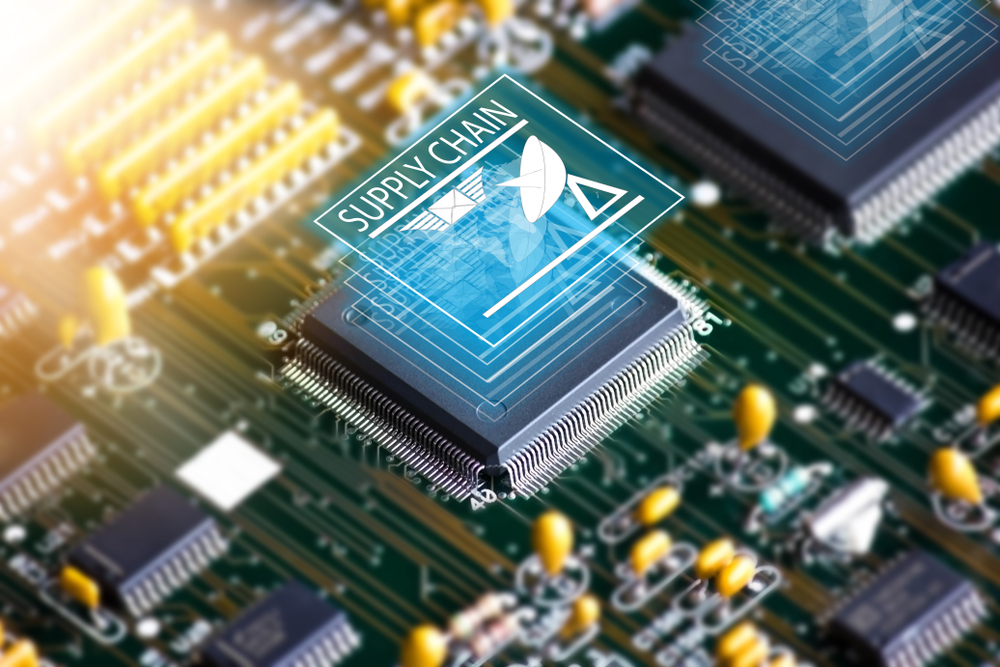As the economy continues to reopen and businesses strive to move beyond the COVID-19 pandemic, industries are experiencing a demand surge that has overwhelmed the supply chain in numerous areas. Material shortages, increasing prices, port bottlenecks, and challenges with demand forecasting are just some of the disruptions companies are trying to work through.
To make matters worse, many industries are also facing challenges caused by a global semiconductor chip shortage. A semiconductor chip is a critical component in many high-demand products, from smartphones to cars, and even washing machines.
The automotive, technology, and consumer electronics sectors have all cited massive delays in product manufacture due to the chip shortage, sparking supply chain interruptions and declines in revenue — while leaving consumers frustrated.
Why is there a Chip Shortage?
The circumstances leading to the shortage of semiconductor chips have been developing over the past few years. Although exacerbated by shutdowns caused by the COVID-19 pandemic, there were other factors over the last year that led to this predicament. Some of these factors include:
- The rise of 5G, has put semiconductor chips in higher demand.
- The winter storm in Texas, shut down semiconductor factories.
- A fire at a semiconductor plant in Japan, caused delays.
Impacts on the Supply Chain
A wide variety of industries are impacted by this shortage, and it has led to decreased availability of many consumer products that feature electronic components:
- According to AlixPartners, the semiconductor chip shortage is now expected to cost the global automotive industry $210 billion in revenue in 2021.
- Some car manufacturers have said that the ongoing shortage remains a huge problem for them, leading to a decline in output numbers, meaning fewer cars on dealership lots. Other manufacturers are hopeful that the shortage will begin to stabilize soon, but they still expect a supply chain bottleneck moving into 2022.
- Consumers who plan on purchasing a Nintendo product for this holiday season are finding it to be a very difficult challenge. According to Reuters, Nintendo will make 20% fewer Switch game consoles than planned this year because of semiconductor chip shortages.
- Apple has cited similar issues, reporting that the company will likely have to cut its projected iPhone 13 production targets for 2021 by as many as 10 million units.
Supply Chain Technology — Benefits and Challenges
To mitigate the overall challenges caused by the pandemic, many logistics companies and manufacturers are using enhanced supply chain technology to streamline processes and prevent future disruptions. However, some of the technology tools and improvements needed for warehouse management and other automation practices have also been impacted by the semiconductor chip shortage, making it even more difficult for companies to stabilize their supply chains. Many companies seeking to optimize their operations have made the switch to plastic pallets from iGPS, which are lighter, more durable, and 100% recyclable. They also incorporate RFID technology, making them traceable and readable by automated systems.
For manufacturers that are experiencing the impacts of the semiconductor chip shortage, it seems difficult to see the light at the end of the tunnel. While we are still in the thick of the crisis, it is expected that as we move into 2022 the situation will begin to improve, with the hopes of a full recovery by 2023. Until at least then, consumers can expect to see continued product delays while industries do their best to mitigate this material shortage.
Companies committed to streamlined logistics operations use iGPS plastic pallets for all their shipping needs. Our lightweight, recyclable plastic pallets streamline production and handling, while also reducing your Total Cost of Business. For more information, contact us at 1-866-557-0047, email a specialist at switch@igps.net, or visit our contact page.



